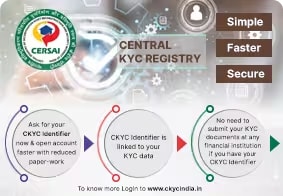Enjoy Zero Charges on All Commonly Used Savings Account Services
- About Us
- MD & CEO letter about the bank
- MD & CEO
- Our History
- Letter to Shareholders on the 1st Annual Report after Merger
- Letter to Shareholders on the 2nd Annual Report after Merger
- Letter to Shareholders on the 3rd Annual Report after Merger
- Letter to Shareholders on the 4th Annual Report after Merger
- Board of Directors
- Awards & Accolades
- News Room
- Investors
- Careers
- ESG
-
Login
Are you ready for an upgrade?
Login to the new experience with best features and services
- Accounts
-
Deposits
IDFC FIRST Bank Deposits
View all Deposits -
Loans
IDFC FIRST Bank Loans
View all Loans - Wealth & Insure
-
Payments
IDFC FIRST Bank Payments
View all Payments - Cards
- Rocket Current Account
-
Cash Management Services
IDFC FIRST Bank Cash Management Services
View all Cash Management Services - Supply Chain Finance
-
Corporate Lending
IDFC FIRST Bank Lending
View all -
Treasury
IDFC FIRST Bank Treasury
See more details - NBFC Financing
-
Login
Are you ready for an upgrade?
Login to the new experience with best features and services
-
Customer care hotlineCall 1800 10 888
- IDFC FIRST Bank Accounts
- Savings
Account - Corporate Salary
Account - Senior Citizens
Savings Account - First Power
Account - Current
Account - NRI Savings
Account - TASC Institutional
Account - Savings Account
Interest Calculator
- IDFC FIRST Bank Deposits
- Fixed
Deposit - Recurring
Deposit - NRI Fixed Deposit
- Safe Deposit Locker
- FD Calculator
- RD Calculator
- IDFC FIRST Bank Loans
- Personal Loan
- Consumer Durable
Loan - Home Loan
- Education Loan
- New Car Loan
- Pre-owned Car Loan
- Two Wheeler Loan
- Pre-owned Two
Wheeler Loan - Commercial Vehicle
Loan - Gold Loan
- Loan Against Property
- Easy Buy EMI card
- Personal Loan
EMI Calculator - Education Loan
EMI Calculator - Home Loan
EMI Calculator
- IDFC FIRST Bank Wealth & Insure
- FIRST Select
- FIRST Wealth
- FIRST Private
- Mutual Funds
- Sovereign Gold Bond
- Demat & Trading
Account - Term Insurance
- Life Insurance
- Health Insurance
- General Insurance
- IDFC FIRST Bank Payments
- FASTag
- Credit Card
Bill Payments - UPI
- Funds Transfer
- Retail Forex
- Pay Loan EMI
- IDFC FIRST Bank MSME Accounts
- Current Account
- Merchant Multiplier
Account - Startup Current
Account - Agri Multiplier
Account - TASC Institutional
Account - Dynamic Current
Account - Freedom World
Current Account - World business
Account
- IDFC FIRST Bank Business Loans
- Unsecured - Business Loan
- Unsecured - Professional Loan
- Secured - Loan Against Property
- Working Capital Loan
- Construction Equipment Loan
- IDFC FIRST Bank Business Solutions
- Payments
- Collections
- Tax Payments
- Doorstep Banking
- Point of Sale (POS)
- MD & CEO letter about the bank
- MD & CEO
- Our History
- Letter to Shareholders on the 1st Annual Report after Merger
- Letter to Shareholders on the 2nd Annual Report after Merger
- Letter to Shareholders on the 3rd Annual Report after Merger
- Letter to Shareholders on the 4th Annual Report after Merger
- Board of Directors
- Awards & Accolades
- News Room
-
As per amendment in the Income Tax Rules, PAN or Aadhaar are to be mandatorily quoted for cash deposit or withdrawal aggregating to Rupees twenty lakhs or more in a FY. Please update your PAN or Aadhaar. Kindly reach out to the Bank’s contact center on 1800 10 888 or visit the nearest IDFC FIRST Bank branch for further queries.
-
-

If you start investing at the age of 25 and plan to retire at 60, you have 35 years to plan, save, and accumulate wealth. On the contrary, if you start investing at 40, you will have only 20 years left. This pushes the burden of financial stress to a later stage in your life.
Evidently, the sooner you start investing, the better it can be for your financial security. There are multiple investment options in India, such as mutual funds, Exchange-Traded Funds (ETFs), stocks and bonds, etc., for youngsters. However, before you go ahead and pick one, it is important to understand how these investment options work.
Here are some of the best investment options for young investors.
1. Short-Term Bond Funds
These are a type of mutual funds that invest in short-term bonds or debt instruments such as commercial papers, certificates of deposit, government securities, etc. They have a maturity of up to three years. They offer low-risk and tax-adjusted returns. Moreover, they are highly liquid and can be used as an emergency fund in the case of a financial emergency.
2. National Pension Scheme (NPS)
NPS is a retirement scheme backed by the Government of India and governed by the Pension Fund Regulatory and Development Authority (PFRDA). It is one of the voluntary retirement accounts in the country that can be used by the private, public, and unorganised sectors (barring the defence forces). NPS is a great investment option that offers tax benefits and annualised returns, usually ranging between 8% and 11%.
3. Individual Direct Stocks
Stocks, also known as equity and shares, represent ownership of a company. Publicly listed companies have stocks that can be traded on stock exchanges. As an investor, you can buy and sell these shares at a profit. Trading in stocks can involve high risk. However, proper research on the company and sector can help you make sound decisions.
4. Exchange-Traded Funds (ETFs)
ETFs are a basket of stocks traded on the stock exchanges, just like stocks. Similar to index mutual funds, ETFs track an index like the CNX Nifty or BSE Sensex and mimic their performance. There are different types of ETFs, such as gold, bank, international, liquid, etc.
5. Mutual Funds
Another excellent investment option, mutual fund schemes take money from multiple investors and invest it in the market. Every mutual fund has an objective according to which the fund manager may buy and sell securities. Mutual funds are one of the best options as a strategic investment.
There are several types of mutual funds, such as equity, debt, balanced mutual funds, etc. Some mutual funds, like the equity-linked savings scheme (ELSS), also offer tax benefits. For instance, youYou can invest into ELSS schemes from can consider the link IDFC FIRST Bank – MF Investment Tax Advantage ELSS Fund., which ELSS offers tax savings under Section 80C and lets you claim a tax deduction of up to Rs 1.5 lakh per annum.
Conclusion
Picking the right investment option is critical for young investors as it can set the course for financial security in their life. This can be done by evaluating one’s needs and goals and investing in options based on one’s risk appetite and budget. Additionally, young investors can also use a high-yield savings account to save and earn passive income through interest.
Disclaimer
The contents of this article/infographic/picture/video are meant solely for information purposes. The contents are generic in nature and for informational purposes only. It is not a substitute for specific advice in your own circumstances. The information is subject to updation, completion, revision, verification and amendment and the same may change materially. The information is not intended for distribution or use by any person in any jurisdiction where such distribution or use would be contrary to law or regulation or would subject IDFC FIRST Bank or its affiliates to any licensing or registration requirements. IDFC FIRST Bank shall not be responsible for any direct/indirect loss or liability incurred by the reader for taking any financial decisions based on the contents and information mentioned. Please consult your financial advisor before making any financial decision.
The features, benefits and offers mentioned in the article are applicable as on the day of publication of this blog and is subject to change without notice. The contents herein are also subject to other product specific terms and conditions and any third party terms and conditions, as applicable. Please refer our website www.idfcfirstbank.com for latest updates.


 What's special about us
What's special about us



















